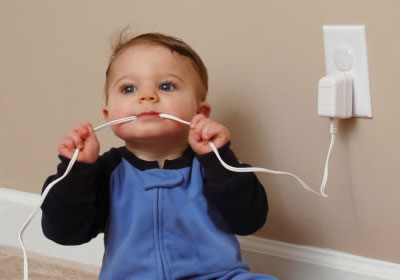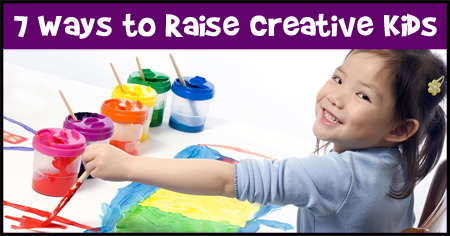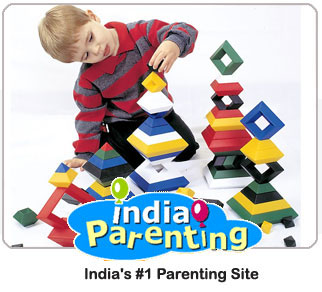Self-control is a very important skill that every child should learn. It helps the child have control over her own actions. Read on to learn 10 techniques for developing self-control in kids so that you can help your child develop this skill.There are many child behavioural problems which arise simply because of lack of impulse control. Often, self-control develops through age, but you can help your child develop this skill through various strategies.
Benefits of Developing Self-Control in Kids
People who have good self-control are happy, popular and successful in life. On the other hand people with lower self-control are likely to develop the habit of over-eating, get into some kind of addiction and are mostly underachievers.
Initially it was believed that self-control can only develop with time, but experts are of the opinion that this skill can be built up provided you do the right type of mental exercises.
10 Strategies to Teach Children Self-Control
The most important thing to keep in mind is to select age-appropriate goals especially when it comes to teaching self-control to kids. It is advisable to opt for simple goals as well as taking into account one goal at a time. However, some general techniques that often help children develop self-control include:
1. Ask Children to Take a Break
Encourage children to take a break or get out of the situation and take time-out when they feel angry or upset. This is one of the proven techniques that work wonders. Children often forget and forgive in almost no time and they will be normal and even feel good after the break.
2. Help Kids Understand Feelings
When kids understand the difference between feelings and behaviour, they start developing self-control. Make your child understand that feeling angry or mad at something is natural, but
hitting someone or
yelling and screaming are not. This will help your child control impulse and she will try to find alternatives to deal with the feeling without reacting impulsively.
3. Help Your child Develop Listening Skills
Children react impulsively because most of the time they do not listen to directions. Habitually they are up and moving even before you finished your sentence. You can teach them to listen carefully by asking them about what they heard before letting them get into action.
4. Use Rewards
Rewards can really help children develop and strengthen self-control.Children learn to make short term sacrifices in order to have long term gains when they have a chosen reward in their minds.
5. Use Penalties as Well
Along with giving reward for a
good behaviour, there should be penalty for bad one also. The threat of punishment encourages children to act so that they achieve long term goals in turn.
6. Teach Problem-Solving Skills
When children learn
problem-solving skill they think before they act. It is advisable to teach your child to look out for various solutions to a problem instead of solving the problem for her. She will learn to analyse the problem, work out solutions and implement the one that best fits in the situation. This will save her to react impulsively no matter what kind of problem arises in life.
7. Establish Household Rules
If you
develop clear rules in your house your children will understand exactly what is expected from them. Make sure you explain to your kids the negative consequences of breaking rules so that they are less likely to break the rules. Establish a routine and provide structure so that there is less chaos and less chances of impulsivity.
8. Model Correct Behaviour
Since children learn more by watching you, the first thing that you need to keep in mind is to model appropriate behaviour. You can teach your child to use self-talk to manage impulsive behaviour. You should also model different ways of waiting patiently and to tolerate delayed enjoyment.
9. Use Specific Activities Designed to Teach Self-Control
Parents can even help small kids to develop self-control with the help of certain activities that are designed to teach and develop self-control in them. One of the best examples is to play impulse control games with them so that they have a fun way to control impulsive behaviour. Researchers believe that memory games also help improve self-control in kids.
10. Encourage Physical Activities
Physically active children have better opportunities to control impulses. Since children are bundle of energy, they are more likely to act without thinking especially when that energy is not used up on time. Engage your child into physical activities and let her use up the energy in the right and healthy way. This will also help her develop self-control and at the same time keep her physically and mentally healthy.
One of the most important responsibilities of parents is to teach their children how to control thoughts, emotions and behaviour. This is because children who reach adolescence without learning this are more likely to exhibit aggressive behaviour, fail academically and experience negative life events as a result of many inappropriate behaviour problems.It is advisable to parents to apply the self-regulation skills to their parenting approach while they teach them to their children. This will also help you develop a good skill that is going to help you strengthen yourself mentally and emotionally as well as you can become a role model for your children to follow. Additionally, you will also be able to connect successfully with your kids and have the greatest joy of parenthood.
Is it possible for younger kids to practice self-control? Why is it important to develop self-control in kids? How to develop self-control in kids? Discuss here. 






























